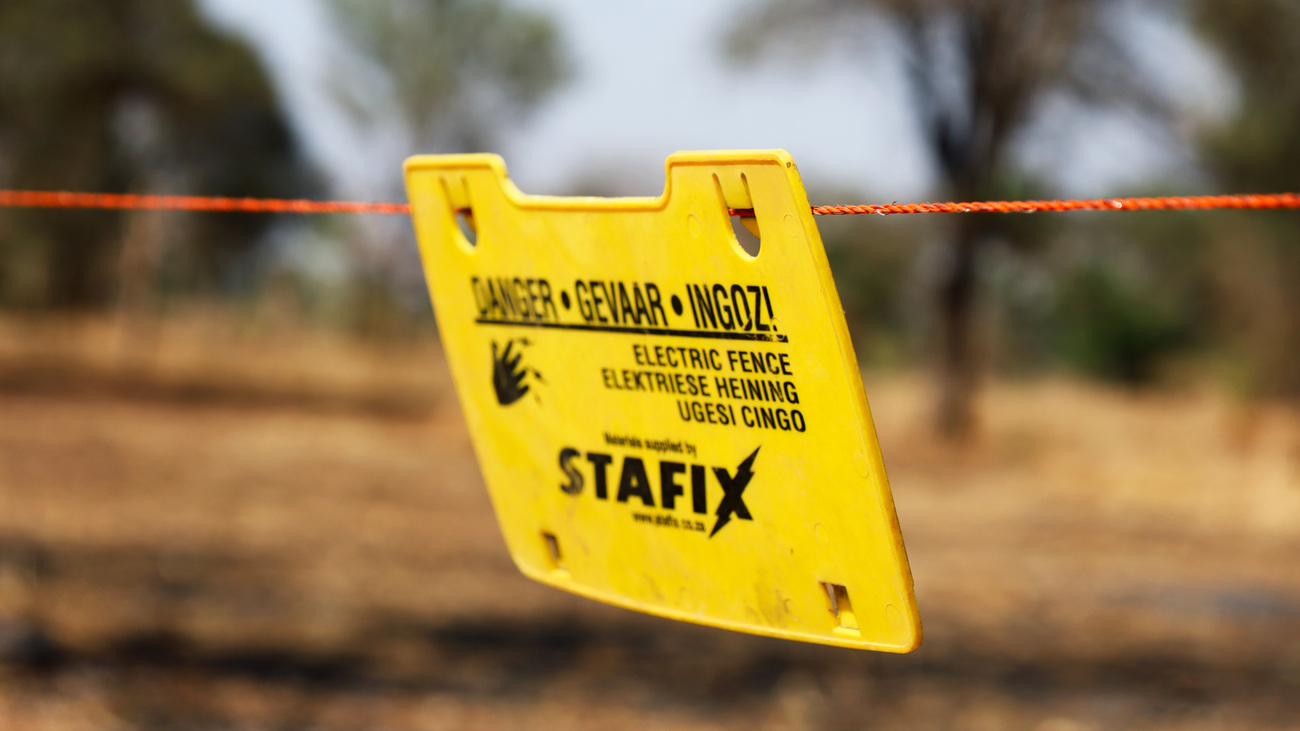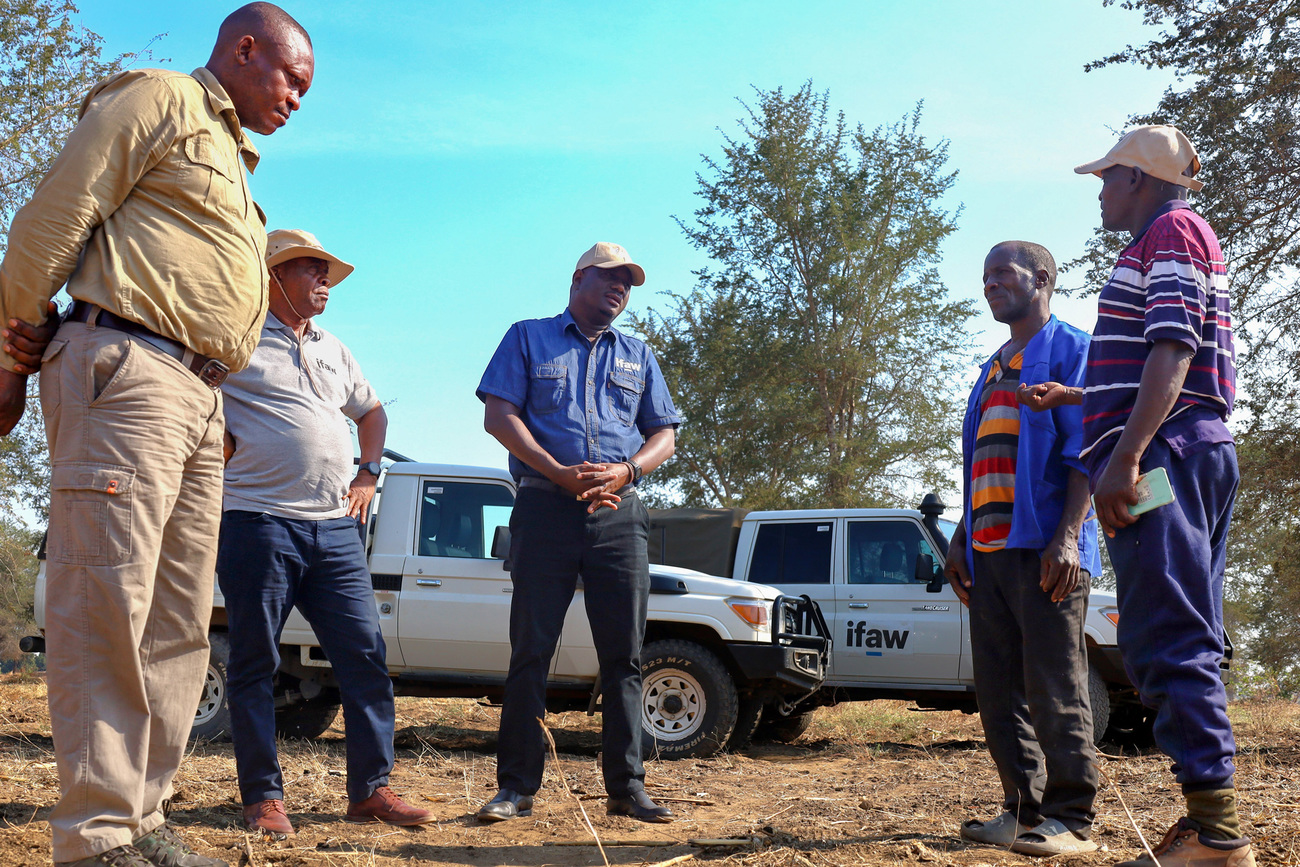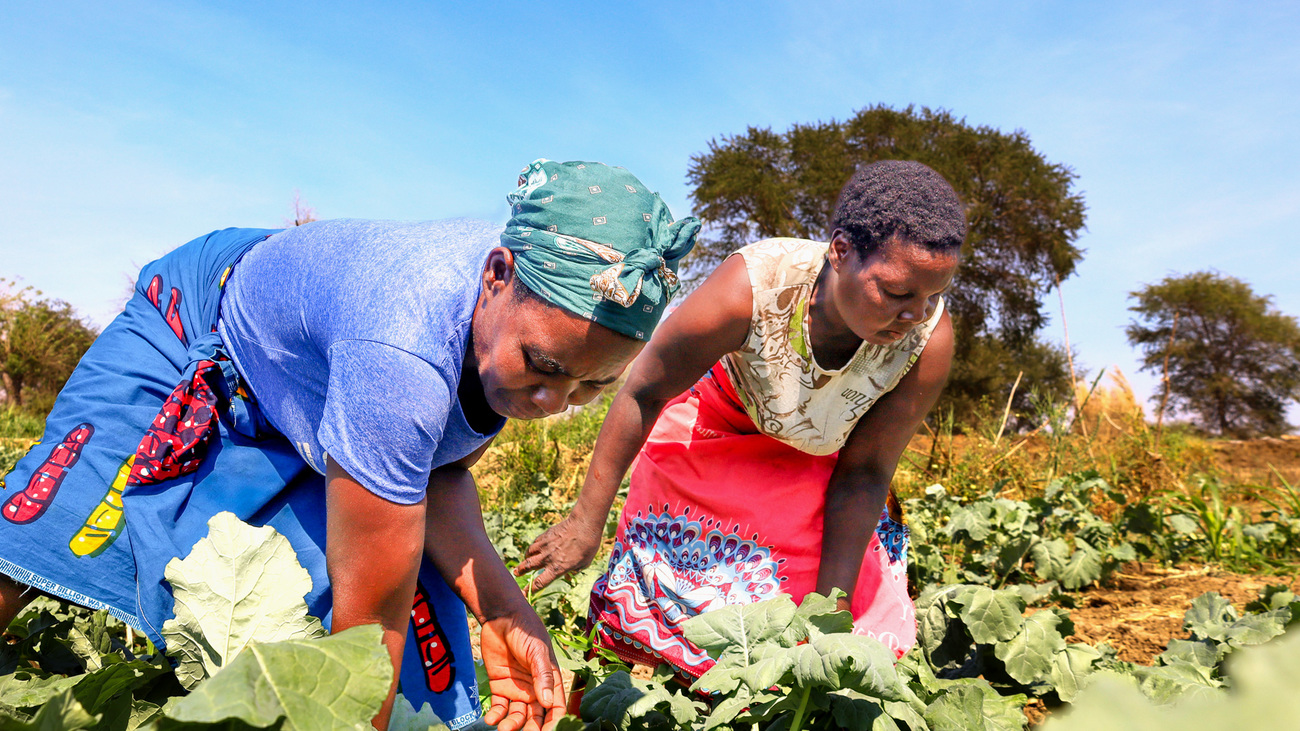Blog
Protecting Kenya’s Voi River is key to human–elephant coexistence
Read moreHow portable solar fences are restoring peace between people and elephants in rural Zambia
By Zanji Valerie Sinkala, writer based in Lusaka, Zambia
Earlier this month, a herd of elephants entered Kavikuyu village in Chikomeni Chiefdom, Eastern Zambia. Normally, this would present a serious danger to the community—and to the elephants, who may be killed in retaliation for destroying farms. But this time, while members of the community held their breath, the elephants turned around and left.

This was the first time in years that residents watched elephants pass without losing crops or fearing for their lives.
In Zambia’s Kasungu–Lukusuzi landscape, where elephant corridors overlap with subsistence farms, a low-cost, high-impact solution is helping communities breathe a long-awaited sigh of relief. Temporary solar-powered poly wire fencing—installed by IFAW and Zambia’s Department of National Parks and Wildlife (DNPW)—is proving to be a game-changer in reducing human-elephant conflict.
‘We have suffered with elephants for a very long time,” says Margaret Mwanza, standing beside her protected maize field. ‘When they came, they would eat everything we had planted. Maize, sweet potatoes, ground nuts. Since the fence was put up, they no longer come near us. We feel safe.’
The fences are portable and not prefabricated—they’re community-built, cost-effective, and easy to relocate as needed. Constructed using wooden poles and solar system equipment including solar batteries, energisers, and a mix of fine wire interwoven with polyethylene, the system delivers a harmless electric pulse that deters elephants without injuring them. Due to its flexibility, the wire is not stiff enough to use for creating snares, preventing poachers from doing harm to other wildlife.
Installation begins with participatory site mapping, during which villagers help identify high-risk areas and assist with the construction process. Men cut poles. Women clear paths. Everyone plays a role.

‘To put this fence up, we first meet with the community,’ explains fence technician Cooper Zimba. ‘We space wooden poles 10 metres apart, attach insulators, wire the line, and connect it to solar-powered batteries.’ The fences are activated only when needed—usually at night—reducing risk and saving energy.
So far, 76 kilometres of poly wire fencing have been secured for rolling out across the Kasungu–Lukusuzi corridor, including 60 kilometres provided by IFAW and 16 kilometres added by DNPW. 30 kilometres, covering 450 hectares of farmland across 15 clustered farms, have been installed. Efforts are underway to roll out the remaining fences.
But it’s the local ownership that powers the project’s long-term success. As Charles Siame, IFAW’s Field and Community Coordinator, explains, ‘This isn’t just about building a fence—it’s about empowering communities to protect themselves.’
And it’s working. ‘Before, elephants used to terrorise us,’ says Sarah Moyo in Gola. ‘But since this special wire was installed, things have changed. The first time they touched it, they ran. They haven’t come back.’

It’s a blend of traditional knowledge and practical innovation, keeping elephants at bay while keeping people and the environment safe.
‘It’s an exciting technology,’ says Chris Kaoma, IFAW’s Field Operations Manager in Zambia, ‘because it looks simple, but an elephant is repelled immediately when it touches it.’
Part of IFAW’s expansive Room to Roam initiative, our ambitious vision for conservation in East and southern Africa, this fencing supports a broader strategy to ensure elephants can move freely across landscapes while keeping people safe. With early warning systems, primary response teams, informational signage, and targeted awareness-raising meetings working alongside the fences, communities are finally beginning to envision a future of coexistence, rather than conflict.
Our work can’t get done without you. Please give what you can to help animals thrive.
Unfortunately, the browser you use is outdated and does not allow you to display the site correctly. Please install any of the modern browsers, for example:
Google Chrome Firefox Safari